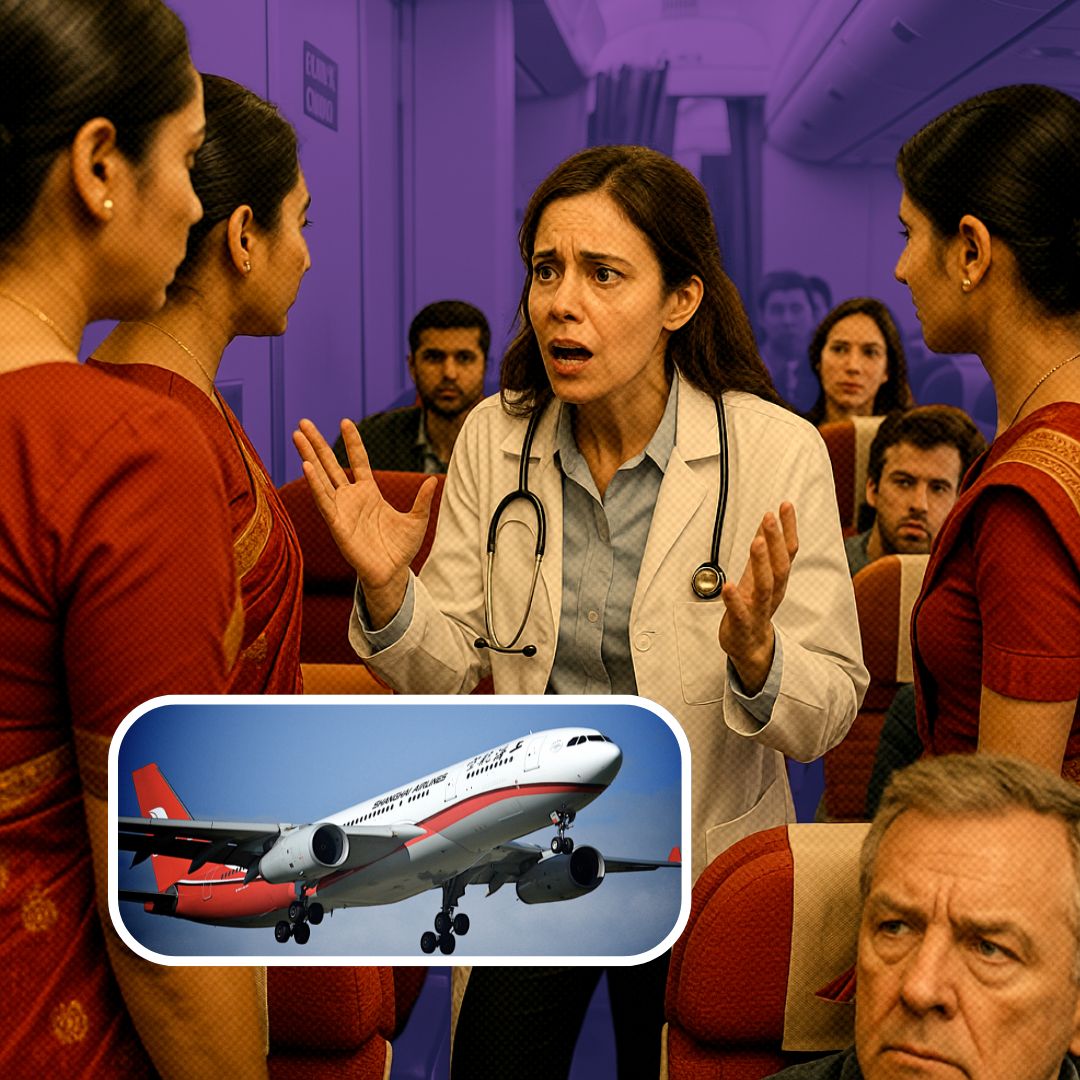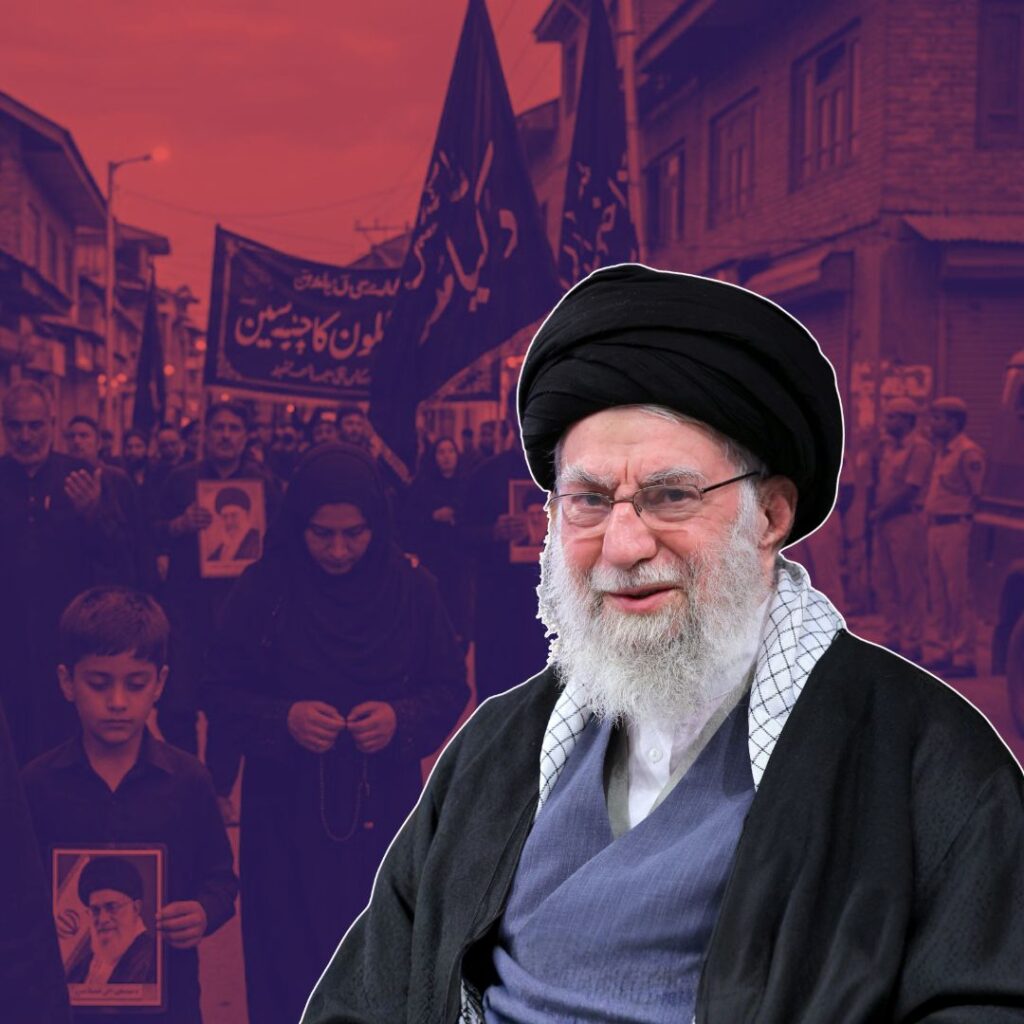A 36-year-old doctor, Vyas Hiral Mohanbhai, was arrested on Tuesday after causing a major disturbance aboard an Air India flight from Bengaluru to Surat. The incident began when she insisted on placing her baggage in a restricted area near the crew cabin and escalated to verbal abuse, threats to crash the plane, and the alleged assault of a fellow passenger.
The episode delayed the flight by two hours, prompted a significant security response, and led to her being booked under stringent aviation and criminal laws. Authorities are now investigating her background and mental health, as videos of the altercation circulate widely online, fuelling public debate about passenger behaviour and airline safety.
High Drama at 30,000 Feet: What Happened Onboard?
The trouble started before takeoff, when Dr Mohanbhai, travelling alone, bypassed the check-in counter and insisted on carrying both her bags into the cabin. She placed one bag in the overhead bin of the first row, near the crew area, despite being assigned seat 20F further back. When the cabin crew requested that she move her bag to the overhead bin above her seat, she refused and demanded the crew do it for her.
Eyewitnesses and viral videos show her shouting at staff and passengers, using abusive language, and striking a fellow passenger who attempted to intervene. Matters escalated when she allegedly threatened to crash the plane if her demands were not met, creating panic among passengers and crew.
The captain immediately alerted airport security, and Central Industrial Security Force (CISF) personnel boarded the aircraft to escort her off, while the remaining passengers waited anxiously for the situation to be resolved.
Police Response, Legal Action, and Ongoing Investigation
After being removed from the aircraft, Dr Mohanbhai reportedly continued her disruptive behaviour at the Kempegowda International Airport police station, where she abused and allegedly manhandled police officers.
She was booked under several serious charges, including Section 351(4) (criminal intimidation) and Section 353(1)(b) (statements causing public alarm) of the Bharatiya Nyaya Sanhita, as well as Section 3(1)(a) of the Suppression of Unlawful Acts Against Safety of Civil Aviation Act, which can carry a life sentence for endangering aircraft safety.
Her husband, who works at a local educational institution, told police that she had stopped practising medicine and had previously caused disturbances in public spaces. The authorities are now conducting a thorough background check, including her mental health history, to determine if there were any prior incidents or underlying issues that contributed to her behaviour.
The incident has reignited public discussion on the need for stricter passenger screening and improved protocols for handling disruptive behaviour on flights.
The Logical Indian’s Perspective
This troubling episode underscores the critical importance of empathy, patience, and responsible conduct in shared public spaces, especially in the unique and high-pressure environment of air travel.
While the safety and security of passengers and crew must always take precedence, it is equally important to approach such incidents with compassion and a focus on de-escalation.
Airlines and authorities must ensure robust training for staff in conflict resolution and mental health awareness, while society as a whole should reflect on how to better support individuals in distress. As we grapple with these questions, we invite our readers to consider: What more can be done to balance safety and compassion in our public spaces, and how can each of us contribute to a culture of kindness and understanding during moments of crisis?











